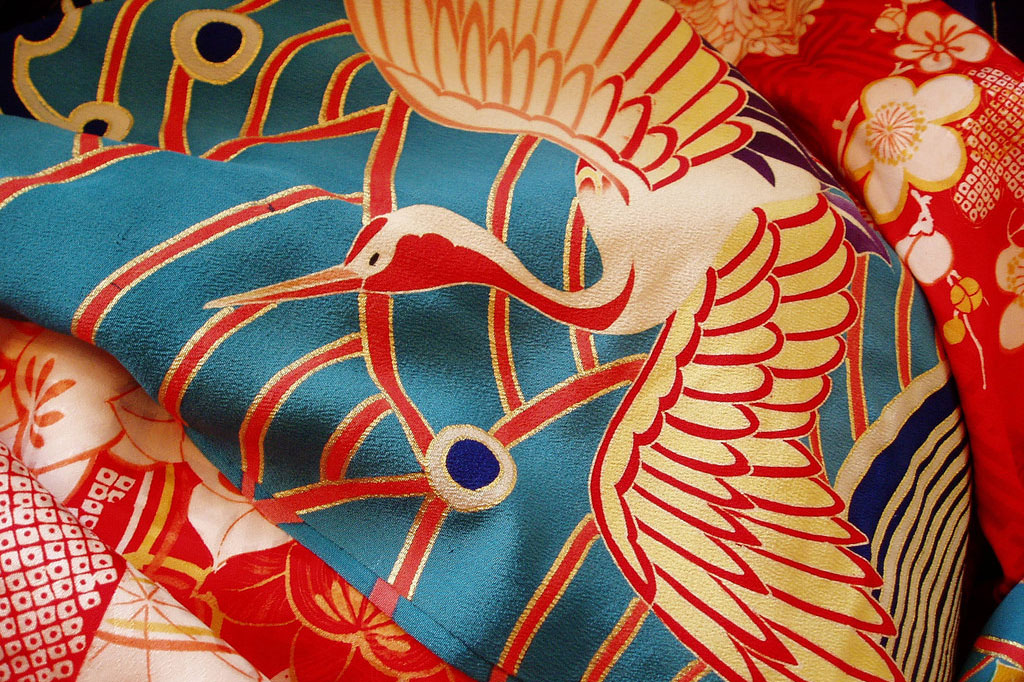Folklife Friday is a weekly digest of arts and culture articles, podcasts, and videos from across the web. Read on for a selection of the week’s best cultural heritage pieces, and don’t forget to check back next Friday for a new set of weekly picks.
The Expressive Kimono
In this spellbinding video, kimono producer En Isomoto speaks to the intricate detail and studied craft of kimono making. “There are so many stories, hopes, and dreams embedded in the cloth,” Isomoto explains in the clip. From the florid sketches—themselves a work of art—to the gilded embroidery, Isomoto’s is a craft enlivened by layers of cultural and social meaning. “Kimonos…are also able to portray certain kinds of emotions, like a familial bond or relationship” Isomoto adds. “In the future we’ll really have to reexamine our culture, and will still preserve the kimono. It is part of our duty, and that’s why this work is important.”
The Uniquely Indonesian Pains of Having Only One Name
“What affect does constantly being questioned about my identity have on a child growing up?” It’s a question Chinese Indonesian writer Alice captures in this piece. In tracing the history of her first-name-only exchanges, Alice examines the Suharto-era policies that forced her parents to shorten her name, the innumerable questions she has received since, and the value of names in defining her sense of self. “A family name is not only fundamental to one’s sense of identity and belonging, it stores generational data of values and honor, is therefore sacred and supposed to be protected.”
Can a Podcast Revitalize an Endangered Alaska Native Language?
In 2016, the Juneau-based Sealaska Heritage Institute launched two phone applications and a podcast designed to teach listeners Tlingit, one of four Native languages from Alaska’s southeast region. In this interview, Katrina Hotch, the group’s language project coordinator, discusses the project, its use of visuals, and their plans to launch a Xaad Kíl and Sm’algyax-language series in the future. “Passion is contagious, and if people are hearing people who are passionate about the language, then it draws them in more.”
Nothing Tastes the Same
For Eritrean American writer Rahawa Haile, taking a road trip with her father from Atlanta to Washington, D.C., was a study in hearty, roadside fare and stark, intergenerational differences. “We enter our car with the kind of giddiness endemic to cheap, exquisite decadence,” Haile writes following their visit to Fat Matt’s Rib Shack. “We’d grown closer in four days than we had in years,” Haile writes, “but it would clearly take more for us to be willing to share with each other in the ways that truly mattered.”
A Prescription for “Racial Imposter Syndrome”
In this episode of the NPR podcast Code Switch, hosts Shereen Marisol Meraji and Gene Demby explore the concept of “racial imposter syndrome.” Among the guests on the show is Amelia Tsang, a sociolinguist and advisor for the Smithsonian Folklife Festival program On the Move. In this interview, Tsang speaks to the value of heritage languages, examines so-called “linguistic gatekeeping,” and reflects on her own experience learning a new language. “When I learned Mandarin as an adult I did feel a stronger connection to my culture and heritage and was able to connect with my parents on a deeper level,” Tsang explains. “There is a lot to be said for trying to regain your heritage language.”
Special thanks to editor Elisa Hough and to Michael Atwood Mason and Rori Smith for their contributions to this week’s digest.


